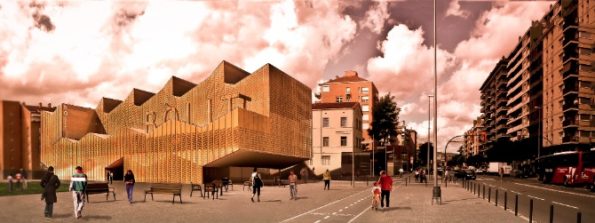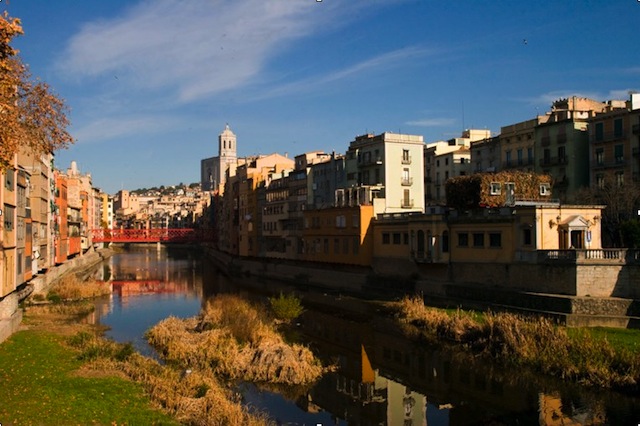Search
To search for an exact match, type the word or phrase you want in quotation marks.
A*DESK has been offering since 2002 contents about criticism and contemporary art. A*DESK has become consolidated thanks to all those who have believed in the project, all those who have followed us, debating, participating and collaborating. Many people have collaborated with A*DESK, and continue to do so. Their efforts, knowledge and belief in the project are what make it grow internationally. At A*DESK we have also generated work for over one hundred professionals in culture, from small collaborations with reviews and classes, to more prolonged and intense collaborations.
At A*DESK we believe in the need for free and universal access to culture and knowledge. We want to carry on being independent, remaining open to more ideas and opinions. If you believe in A*DESK, we need your backing to be able to continue. You can now participate in the project by supporting it. You can choose how much you want to contribute to the project.
You can decide how much you want to bring to the project.

Power is now the final form of representation: it no longer represents anything or anybody, only itself. (Jean Baudrillard)
We could begin by talking about the economic crisis, but at this point, who would be surprised? It’s not that we’re out to surprise, or at least not gratuitously, but it is still surprising that everything carries on, impassively. What we find surprising is the very lack of reaction in the face of everything that is occurring.
Along a similar line of thought, the areas from which to tackle the divide are multiple, it is true, so for this, more than proposing economic motives and reflecting upon what Stiglitz dissects in Caída Libre (Free fall) in relation to the collapse of the world economy, I’m interested in proposing how we have granted visibility to what Baudrillard profiles in The agony of power. The best way of not creating confusion is by looking at specific cases, so here goes. Before going any further, I’d like to apologise to all those individuals and collectives who, even though they find themselves in similar situations, aren´t mentioned here, it’s just the list would be almost interminable.
Let’s take an example: Gerona. Specifically:Bòlit, Centre d’Art Contemporani. What has happened exactly? When it opened its doors in 2008, under the tutelage of Rosa Pera, who is currently still today the director of the centre, nobody imagined that its very name would turn against it. Bòlit is also the name of a Catalan game, in which two teams test their skills hitting the bòlit (a little ball) with a wooden bat. In this case, the metaphor couldn’t be more literal. Two teams, batting away at the tool. This is embodied not just in the space, but also in the human team carrying out the project, that since opening and still today, is also a reduced group of 3 people, Rosa Pera, Diana Sans and Farnés Cabra. These three have been capable of carrying out the Herculanean task of establishing the centre during the last five years. The initial idea was to set up a dynamic centre, driven also by the citizens, with a few precedents that served as driving forces, with the aim of promoting production, creation, training, research and dissemination. At the end of these years, a series of changes have taken place that have done nothing more than erode what in its day was full of promise and incentive.
It’s worth mentioning that they have achieved parts of the proposals, some of what has been abandoned by the wayside must be attributed to questions of an economic nature. But as we said, Bòlit has known how to adapt to the demanding and at times capricious changes of the crisis, adapting its programme to the times that have seen its birth. We already said that we wouldn´t talk about numbers, it would be just one of many, but it is necessary to comment on how the programme has been realised on a shoestring. With budgets, that with difficulty would provide for an annual trimester. For this the management has been almost impeccable, improvising, exchanging and seeking ways, other ways, to create constant lines of investigation through agents and contexts with which they were conceptually in tune. At some point, their task has maybe remained misunderstood and even at times exposed to some criticism, based on its lack of local visibility, however, an art centre is not a local exhibition space, one should know this.

Artists have had their place and citizens have been involved. External curatorial programmes have been missing, as have residency programmes, and more suggestively, more dialogue. It would be unjust not to say that we ought to look for the causes in two directions. But the principal one, the space, has seen itself ever more reduced and hemmed in. The achievements have been carried out with the best of intentions. By no means minor, quite the contrary. Five years of programming that have been linked to local, national and international proposals, with activities linked to multiple spaces in the city. Generating alternative spaces without having almost any space. In fact, the initial project also included the construction of a building that would be the new headquarters, words that were soon, just castles in the air. Now it doesn’t even count on its initial perimeters, those spaces in the Rambla have passed to the domain of tourism. Bòlit is today ordained to a nomadism that we hope soon reaches a safe haven, (ah, what faith!) To sum up, the greatest problem is not the economic crisis but the crisis of ambition and interest on the part of cultural policies.
We could add other independent initiatives that are adrift due to the same causes, festivals and collectives with more than a decade of history that are seeing how their foundations are beginning to topple: the festival of theatre, music and dance Temporada Alta, the VAD festival de vídeo y artes digitales, festival of video and digital arts, the FEM festival of performance, the dance troupe Mal Pelo,amongst many others.
We can only hope that the institutional discourse presented isn´t based fundamentally ad captandum vulgos.

Imma Prieto has for years been marking out three paths from which to reflect about the different contexts that characterise our contemporaneity. Criticism, curating and teaching enable her to think about and establish dialogues from different perspectives and with different objectives, looking for bridges between them. Her research has revolved around performance and video, languages that both arose in the dawn of the sixties that is, in the last years of modernity. Is it because we don´t really know where we are now? Conclusion?
"A desk is a dangerous place from which to watch the world" (John Le Carré)